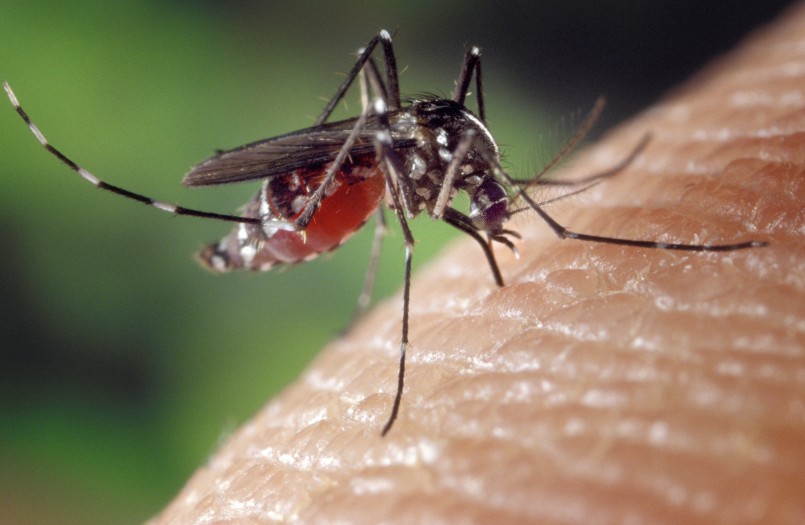Environment
Will Mosquitoes Be The First Animal Humans Make Extinct On Purpose?

Image: Wikipedia
With the Zika Virus becoming the latest in the list of dangerous diseases spread by the ever-present mosquito, scientists are taking a new look at the role of what is undoubtedly the world’s most dangerous animal. It’s estimated that half of all humans who have ever lived have died as a result of malaria. The mosquito, or at the least the Aedes Aegypti subspecies that spreads these diseases, is not just a pest. It is the most prolific vector of death and misery humanity has ever known. Now there are suggestions that genetic engineering could be used to eradicate this sub-species. If successful, it would mean freedom from diseases like malaria, dengue fever, yellow fever, and yes, even Zika. It would also mark the first time mankind has decided to use science to make a species extinct. Can we do it? And most importantly, should we?
Malaria is caused by tiny parasites spread with the bite of an infected mosquito. These parasites take up residence in the victims liver, where they multiply until they break into the vascular system and cause symptoms. If untreated, these parasites can block blood vessels, leading to amputated limbs, brain damage, and death. There is no vaccine or cure for Malaria and millions of people around the world will contract it each year. It is estimated that one million of them will die from it every year. It is perhaps a measure of our ability to inure ourselves to the suffering of others that the 3000 children who die of Malaria every day will not raise any attention in the American consciousness, while the suggestion that Zika might spread to the US whips us into a panic.
It is actually only a small number of mosquito species that spread these diseases. In fact the total number is about 40. Though efforts are regularly made in developing countries to eradicate these populations in order to prevent disease, with their rapid breeding cycles and ability to deposit eggs in any tiny body of water they can find, the chance that they will be eliminated permanently is very low. What scientists are suggesting instead of pesticides, is gene alteration. The genomes of female mosquitoes would be altered so that they would only produce sterile offspring. Within a few generations, this would lead to the extinction of the species.
But even if it were possible to eliminate these populations of mosquitoes, the question remains: Should we? Mosquitoes do play an important role in the food chain. Their larvae feed a large number of other animals and make up most of the biomass in your average pond. However, there are experts who argue that the niche filled by mosquitoes could easily be filled with other insects.
There is no doubt that eliminating mosquitoes would save millions of lives. Is that worth the cost of playing God? Does this technology establish a dangerous precedence for other species. Should humans decide which animals get to live and which don’t? Let us know in the comments.





0 comments